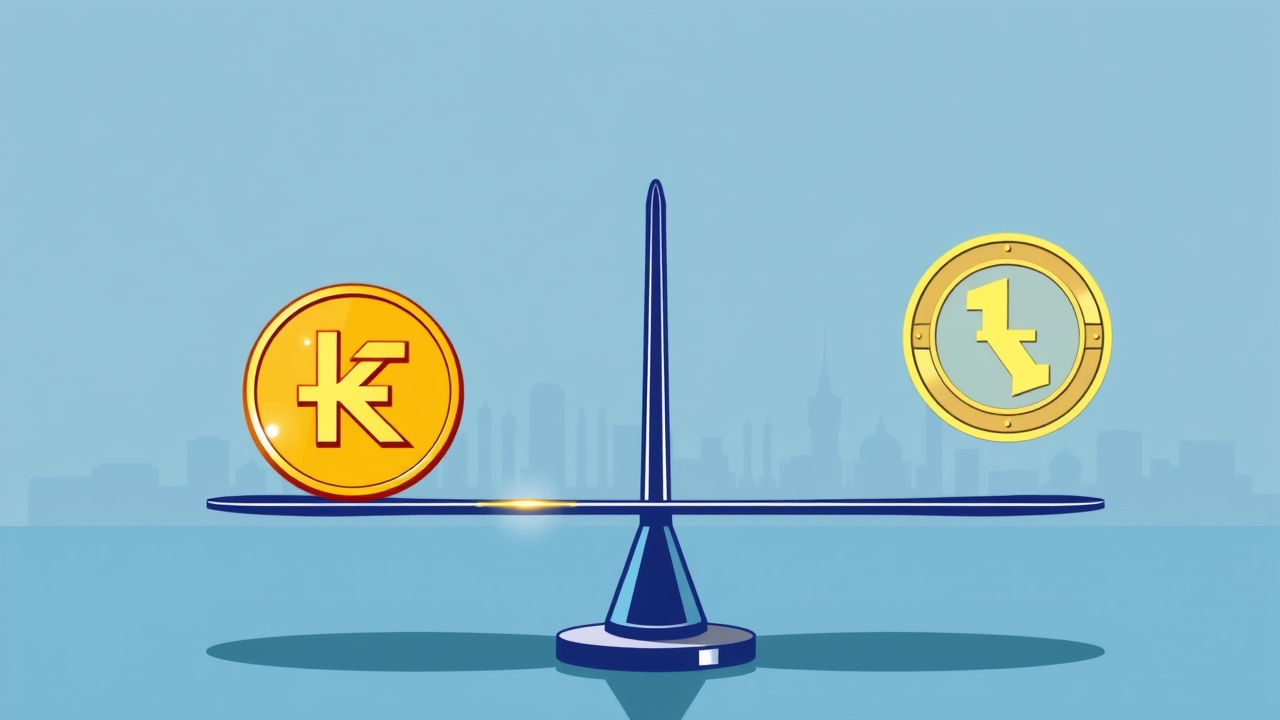Kazakhstan’s Financial Innovation
Kazakhstan is innovating its financial landscape by adopting a dual strategy for digital assets that encompasses both a central bank digital currency (CBDC) and a state-supported stablecoin. This month, the National Bank of Kazakhstan introduced the Evo stablecoin in partnership with tech giants Solana and Mastercard, positioning it as one of the pioneering state-endorsed stablecoin initiatives on a global scale. Simultaneously, work continues on the CBDC known as the digital tenge, which commenced its pilot phase in 2023.
Complementary Digital Assets
Deputy Governor of the National Bank, Berik Sholpankulov, emphasized that the digital tenge and Evo stablecoin are designed to be complementary rather than competitive. In an interview with Cointelegraph, he explained,
“We’re focusing on the possibilities for both integration and interoperability between these two assets.”
As legislative efforts are underway to establish the digital tenge as legal tender, this currency is expected to be treated on par with traditional fiat money.
Sholpankulov clarified the distinctions between these digital assets. The Evo stablecoin serves as a private-issued token primarily used within specific ecosystems, which will be populated by a diverse range of participants. Contrastingly, the digital tenge is set to fulfill a vital function in interbank transactions while enjoying legal recognition.
“Once the regulatory framework is established, the digital tenge will function as a legitimate method of payment and serve as a guarantee facilitated by the national bank,”
he remarked, suggesting that the CBDC could provide the architecture for businesses and fintech companies to innovate without needing direct access to traditional financial institutions.
Coexistence of Financial Tools
Echoing this sentiment, Talgat Dossanov, founder of the Intebix exchange—responsible for the issuance of the Evo stablecoin in collaboration with Eurasian Bank—underscored the notion that these financial tools could coexist harmoniously. He noted,
“These projects are not inherently in opposition; instead, the digital tenge reinforces the central bank’s authority, while the stablecoin fosters international engagement and simplifies cross-border transactions.”
Dossanov characterized this framework as a “two-tier system,” where the CBDC serves as an instrument of monetary policy, whereas the stablecoin provides practical solutions for everyday business and consumer transactions.
Goals and Global Positioning
Reflecting on previous international stances towards CBDCs, particularly in light of the previous U.S. administration’s preference for stablecoins, Dossanov noted that for many nations, especially those with unstable currencies, CBDCs play an essential role in achieving financial autonomy and reducing dependency on foreign monetary systems.
“For Kazakhstan, the core goal of the digital tenge as a CBDC is to safeguard our payment infrastructure’s independence and sovereign status,”
Sholpankulov affirmed.
Kazakhstan aims to solidify its position as Central Asia’s blockchain hub through these initiatives. The country has been at the forefront of integrating stablecoins for regulatory fees, launching one of the region’s first Bitcoin exchange-traded funds, and is even considering the creation of a state-backed cryptocurrency reserve. The Kazakh government is also nurturing partnerships with major cryptocurrency exchanges such as Binance, having recently approved a crypto fund linked to BNB exposure.
Recent Developments
On a recent Thursday, National Bank Chairman Timur Suleimenov engaged in discussions with former Binance CEO Changpeng “CZ” Zhao regarding a new stablecoin initiative, KZTx, and various other tokenization projects in Alatau City. Coincidentally, on the same day, Telegram co-founder Pavel Durov met with Kazakhstan’s President Kassym-Jomart Tokayev at the Digital Bridge 2025 forum, unveiling plans for an AI research facility in Astana. President Tokayev separately conferred with Zhao, further underscoring his commitment to enhancing Kazakhstan’s standing in the global cryptocurrency sector.




